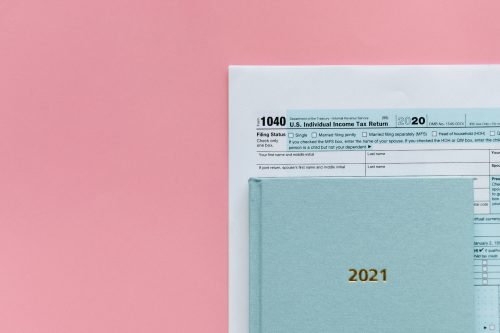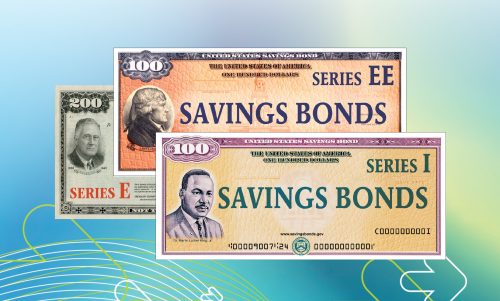- Looking for your dream home? In today’s competitive market, many homebuyers are discovering the advantages of all-cash offers.
- With all-cash deals rising by five percent in 2021, you may be wondering where the cash is coming from—and if this is a smart option for you.
- Consider asking yourself these questions before making an all-cash offer on your next home.
The pandemic fueled a homebuying rush that’s led to prices rising by double digits over the past year. But another trend for buyers—purchasing homes with all cash offers—also rose by about five percent in the first two months of 2021 in the 300 largest metropolitan areas, compared with the same period last year. That puts all-cash deals at about 20 percent of sales over that period.
In a competitive market, people who make all-cash offers may present as more desirable candidates, but the move deserves some reflection. Here are three questions to ask yourself before considering this type of transaction.
Where is the cash coming from?
Median home prices in Southern California reached $752,250 in May of 2021, while the average single-family home in Boston is even higher at $825,000. In Manhattan, the median sale price topped out at $1.1 million in the second quarter of 2021. With soaring prices, it’s important to consider the source for a cash offer, and whether borrowing from those accounts will do more harm than good. For example, some places a person might borrow from include:
Retirement lump sums: If your employer offers it, you may be able to take a one-time payment of all or a portion of your pension—known as a lump-sum payout option—to cover the cost of a home. You will owe taxes on a lump-sum payout (as well as a penalty tax if you take a lump-sum payout before 59 ½), and this may drastically alter your overall retirement plans. It’s best to consult with a financial planner before going this route.
- 401(k): It’s possible to borrow from your 401(k) to buy a home, but pulling the money from an investment account may end up costing more over time or, even worse, set you back in your retirement goals. This is especially true for people closer to retirement age. For example, a 55-year-old who plans to retire at 67 and wants to pull $50,000 out of their 401(k) (the limits on borrowing from your 401(k) for a home are up to 50% of your vested account balance or $50,000, whichever is less) could make an additional $115,547 on that money by the time they retired, assuming a seven percent rate of return.
- Equity compensations: If it’s available, cashing in on equity compensation from your employer may be another way to get the cash necessary to purchase a home. Like retirement accounts, it’s important to weigh the pros and cons. For example, equity compensation in the form of stock options may not fully vest until a specific period, so pulling them out early may cause you to lose out on their full financial potential and come with a tax bill when realizing any capital gains. It’s best to consult with an accountant to make sure you are aware of any tax implications.
- Family/personal trusts: Borrowing from a personal or family trust might be a smart— and potentially easier— way to pay for a house than going through the traditional mortgage process, but you should understand the rules of your trust regarding lending and distributions, as well as any potential tax implications. Before going this route, speak with an estate attorney to be sure you know exactly what you’re getting into.
- Home equity lines of credit: HELOCs require putting your current property up for collateral, and you’ll only be able to borrow an amount that’s equal to the equity that you have in your home, versus the total value of the home overall. If you’ve been in your current home for a short time, you don’t own a large percentage of the house for whatever reason or the home is worth significantly less than the potential new place, this option might not provide a lot of cash.
- Loans from family or friends: Borrowing from friends and family is one way to bypass the formalities of taking cash from any of the above routes, but even this option comes with caveats. There’s the emotional aspect of being indebted to someone, of course, but there are tax implications, as well. For large loans, it’s best to consult with an accountant to make sure you’re following all the rules and regulations for loans versus gifts.
Will this leave you cash poor?
If you can get together enough money to pay for a home outright, the question remains: How much cash will you have left after you make the purchase? This is important for several reasons.
- Closing costs: Homebuyers still need to pay for things like title insurance, appraisal and home inspection fees. Experts recommend expecting to pay up to three percent of the purchase price on closing costs for your home, even if you’re paying with cash.
- Ancillary costs: Moving into a new home usually involves a lot of other additional expenses, as well. In fact, buyers of existing homes tend to spend about $8,233 on things like appliances, furnishings and remodels during the year after closing.
- Buyer requirements: Co-ops and lenders in major cities like New York may have post-close liquidity requirements. In those cases, you’ll be expected to have a certain amount of liquid capital available after you close on your co-op to even be considered a potential buyer.
If purchasing a home with cash really is the best way to get the home you want in a competitive market, doing a cash-out refinance after you close may help you replenish your cash reserves after the purchase goes through. Financing your home after paying with cash allows you to replenish your cash reserves or even to reinvest in other avenues, like the stock market. This can also allow you to collect some tax relief through mortgage interest write-offs and keep liquid assets on hand in the case of an emergency.
Financing your house after you pay for it in full with cash allows you to borrow enough to cover your bases and reinvest in other areas, while still ensuring that you have a great chance at scoring the home you want in the first place. Keep in mind, though, that different mortgage companies will have different requirements for their underwriting process. Be sure to understand how yours works before going down this route.
Is the need for a cash offer really that great?
In competitive markets, the answer to this question may very well be yes, and there might not be much time to consider your choices once you find the home of your dreams. In San Francisco, for example, the average home sold after just 18 days on the market in July of 2021, compared to 24 days last year.
While offering cash is one way to set yourself apart from the masses, it might not be the only way. Waiving certain contingencies (like appraisal contingencies) or offering to skip certain steps in the homebuying process (like the home inspection) can also be big draws to the seller. Also remember that waiving things like the appraisal might impact your ability to refinance down to the road. It’s important to weigh the pros and cons of each with your real estate attorney and/or lender.
If after doing the research, it doesn’t feel like offering all cash is necessary, applying for a traditional mortgage and saving your cash for other priorities may be the more reasonable way to go. Keeping that money liquid, as opposed to tied up in property, might be more prudent. This is especially true if you can find a low-interest mortgage to purchase the home and keep reserves — like an emergency savings and retirement accounts — intact.










